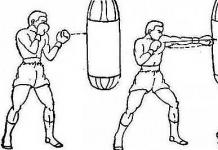Content
Upon reaching the age of 80, people receive additional financial assistance from the state every month. This is not only an increase in the fixed part of the pension and an expansion of the benefits package, but also the appointment of a cash payment for care. This pensioner care benefit is given to a person caring for an elderly person. Who can count on such financial support and what is needed to start receiving it?
What is caring for a pensioner over 80 years of age?
As old age approaches, it becomes more difficult for any elderly person to take care of himself in everyday life. If the situation is aggravated by illness, the situation is even more difficult. In this case, outside support from other people is constantly required. Old people, as a rule, receive free help from their relatives. Not everyone is aware that for persons 80 years of age and older, the state provides the opportunity to receive assistance from other citizens, which is paid for by the Pension Fund.
The compensation is paid monthly along with the pension. In the circumstance that the payment is due to the caregiver, the amount is received by the disabled person who needs help. Upon receipt of funds, the elderly person independently pays the citizen caring for him. Not everyone can pay for caring for an elderly person over 80 years of age. Russians who do not work and do not receive benefits as unemployed, but are able to work according to pension legislation, can count on compensation.
For care, family ties and living together do not play a role. Strangers have the right to look after the elderly and receive payment for it. The category of disabled persons entitled to financial assistance from the state includes:
- disabled people of group I;
- pensioners recognized by the medical commission as requiring constant care;
- citizens 80 years of age and older.
What duties must be performed to care for a pensioner?
Helping the elderly is not only a troublesome task, it is an even greater responsibility and hard work. Patronage of an elderly person over 80 years of age implies the organization of meals, household, household and hygienic services by a person who has voluntarily taken on such work. Different disabled people require different types of help depending on their health status. Some lonely people need more human attention, help with cleaning and buying groceries, others need support at a different level.
Often, pensioners draw up contracts with their assistants, which spell out the responsibilities and scope of assistance. Receipt of monetary compensation is accompanied by the performance of duties:
- pay bills (utility, tax, etc.) from the ward’s own funds;
- buy necessary products, clothes, shoes, hygiene items;
- help with everyday matters (cleaning the premises, personal hygiene procedures);
- buy prescribed medications and ensure they are taken on time;
- Cook;
- regularly measure biomarkers - indications that require monitoring (pressure, blood sugar, temperature, heart rate);
- send and receive correspondence.
Current legislation does not introduce a definition of the concept of “guardianship over an elderly person with the right to inherit his property.” This means that automatic inheritance of the ward’s housing by the person caring for him is not expected. If an elderly pensioner independently decides to leave his property (part of it) to an able-bodied assistant as an inheritance, then it is necessary to write a will.
Compensation payment for caring for disabled citizens
For caring for elderly people over 80 years of age, compensation of 1200 rubles is paid. The amount is established by the President by Decree No. 175 of February 26, 2013. The money is transferred to the assistant by an elderly person. The amount of compensation increases by the regional coefficient at the place of residence of the pensioner. Payments are provided for each ward person. So, if a citizen helps two pensioners, the monthly amount will be double the amount of 1200 rubles, that is, 2400 rubles.
The amount is not so large and mostly family members receive payments for caring for a relative over 80 years of age. Indexation for this type of benefit is not provided for by law. The application of the regional coefficient corresponds to the indicator that is used to increase pensions for residents of the territories:
- the Far North and regions equated to it;
- with a difficult climate;
- others – where additional costs (financial, physical) are needed to ensure normal life.
Requirements for a caregiver
Registration of care for a pensioner over 80 years of age is possible if specific conditions are met. The state requirements for a person caring for an elderly citizen are:
- citizenship of the Russian Federation;
- permanent residence in Russia;
- ability to work under pension legislation;
- lack of income from labor and entrepreneurial activities (no transfers of insurance contributions to the Pension Fund, no registered individual entrepreneur status);
- absence of registration as unemployed in the employment service with payment of unemployment benefits.
Any entrepreneurial activity of the guardian (for example, lawyer, security) is regarded as work if he has a valid individual entrepreneur status, even if the non-working entrepreneur temporarily has no income at the time of receiving payments. Students/pupils can receive compensation, since study is not included in the work (insurance) period, and student scholarships are not counted as income.
In addition to students, payments can be received by housewives and women who, while on maternity leave, receive benefits from social security authorities, since the employer does not maintain a job for them. The age limit for citizens caring for the elderly is legally limited. This opportunity is available to Russians who are already fourteen years old. For such a group of young people, it will be necessary to confirm the consent of the parents and the guardianship and trusteeship authority for the provision of such a service.
How to arrange care for an elderly person
Caring for a grandparent over 80 years of age involves a simple registration procedure. Helping the elderly and disabled requires a certain psychological endurance and skills, representing self-sacrifice to the detriment of one’s interests. When appointing an assistant, preference is usually given to relatives and friends. To begin the procedure, the ward gives the person caring for him written consent to receive and pay for such assistance.
Afterwards, the potential assistant needs to contact the territorial branch of the Pension Fund with an application, which can be submitted in person or remotely through the State Services Portal. The required documents are attached to the application. The entire package is accepted by a fund specialist, who is obliged to issue an official receipt indicating that he has accepted the documents for consideration.

List of documents
To assign an additional payment, you need to collect documents (originals) and prepare photocopies of them according to the list. Documents are submitted from a citizen who is going to care for an elderly person:
- Application for compensation.
- Passport/Birth Certificate.
- Work record book/Certificate from the educational institution indicating the expected time of graduation.
- Certificate from the employment service confirming the absence of unemployment benefits.
- Confirmation of absence of entrepreneurial activity (certificate from the tax authority).
- Written parental consent/permission from guardianship authorities (for Russians 14-16 years old).
Documents from a person who requires the help of an outsider are also needed:
- Passport.
- Consent from the sponsored pensioner for a specific person, indicating the full name and passport information of both.
- Pensioner's ID.
- SNILS.
- Extract from the medical and social examination report on disability.
- Certificate from a medical institution regarding the need for constant supervision (for a pensioner under 80 years old).
Applications for payment processing
A sample application will be provided to you by the Pension Fund, or you can download it from the official website of the Pension Fund. The application for payment of compensation from the caring person must contain the following information:
- name of the local body of the Pension Fund;
- about the applicant - SNILS number, citizenship, passport data (series, number, date of issue, also date, place of birth), registration and actual residence, telephone number;
- indication of the applicant’s employment status – the person does not work, does not receive benefits/pensions;
- date of commencement of care for the citizen, indicating his full name and circumstances requiring constant supervision - age/disability/as indicated by the medical institution;
- a request for compensation with reference to the instructions of the Decree of the President of the Russian Federation of December 26, 2006 No. 1455;
- familiarization with the warning about the need to notify the Pension Fund of the occurrence of circumstances under which payments are terminated;
- a list of attached documents;
- date of completion, signature and its transcript.
Ten working days are allotted for consideration of the submitted documentation package. If the application is rejected, the Pension Fund must notify the applicant no later than five days after the decision is made, explaining the reason for the negative result and the procedure for appealing the decision. Three months are given to submit missing required certificates and documents. The month of acceptance is considered the month of application. Payments are assigned from the month when the documents were transferred, but not before the grounds for compensation arise.

Where to submit
The documentation required to process the refund can be sent through the official website of government services or transferred to the Pension Fund (territorial office) in person. For personal treatment, it is possible to make an appointment in advance via the Internet, which saves time by avoiding queues. The benefit is assigned by the branch of the Pension Fund, which accrues a pension to the elderly person.
If you care for several elderly people, you need to contact the departments responsible for the pension payments of each person under your care. When a person under his or her care changes his/her place of residence, the caregiver will have to submit an application to another department corresponding to the new address. It may be necessary to resubmit the package of papers.
Is there any experience in caring for the elderly?
The time an able-bodied person cares for someone who has reached the age of 80 is taken into account in the total length of service required to apply for a pension. It should be noted that experience in caring for the elderly over 80 years of age is subject to credit if this period is preceded or followed by a working period of any duration. The pension coefficient is calculated at the rate of 1.8 points per year of such supervision and does not depend on the number of wards. The specified conditions are legally established by the Laws:
- “On labor pensions in the Russian Federation” No. 173-FZ, articles 11 and 30;
- “On insurance pensions” No. 400-FZ, article 12.
It is important to consider: this insurance period only determines the right to pension provision; the time of care is not included in the calculation of the pension amount. Law No. 18-FZ, which determines the allocation of federal funds for specific pension payments, provides for reimbursement to the future pensioner of the transfer of insurance contributions during this time. The compensation amount for non-insurance periods included in is determined individually in each case.
Reasons for terminating old-age care benefits
Payment of compensation is terminated for certain reasons, not limited to the cause of death of one of the persons. If situations arise (listed below), the caregiver must immediately report the circumstances to the Pension Fund. Sometimes people just forget about it. Such irresponsible forgetfulness leads to improper payment of amounts, which is fraught with the formation of debt to the state. Five days are allowed for notification. You can choose the sending method in the same way as when submitting an application - in person or remotely.
Payments stop if:
- Receiving compensation:
- got a job;
- registered at the labor exchange and receives benefits as an unemployed person;
- performed his duties in bad faith, which is confirmed by a statement from the sponsored pensioner or the results of an audit by PF employees;
- he himself decided to abandon his duties;
- started receiving a pension;
- called up to serve in the army.
- Ward:
- lost group I disability due to a revision of the previously assigned group;
- left the country and was deregistered;
- sent for permanent residence to a state social service institution;
- died.
Video
Found an error in the text? Select it, press Ctrl + Enter and we will fix everything!Discuss
Caring for a pensioner over 80 years of age: documents for registration
Anonymous 841
How to apply for payment of benefits for caring for a pensioner over 80 years of age
3 days Answer
The Russian Federation has laws that allow citizens to take care of their own and other people's elderly relatives and receive a small allowance for this. In addition, a number of regulations define other preferences for citizens who are unable to take care of themselves on their own.
It must be taken into account that the benefit for caring for an elderly person is small. Nevertheless, in some situations it allows to solve a number of problems of people who do not want to place an elderly relative in a government institution.
Who is considered an elderly person in need of care?
The legislation clarifies the use of terms related to the age of citizens. The gradation is defined quite specifically. So:
- Elderly people include:
- men whose age ranges from 61 to 70 years;
- women - from 56 to 70;
- Elderly people include citizens whose age ranges from 70 to 90 years;
- Those who have crossed the 90-year-old threshold are usually classified as centenarians.
Forms of formal care for the elderly
 According to current legislation, there are several forms of care for disabled citizens:
According to current legislation, there are several forms of care for disabled citizens:
- Full guardianship is provided for disabled people of the 1st group and other people with serious illnesses, as well as incapacitated persons.
- patronage is carried out in relation to capable citizens whose capabilities are limited.
- As a rule, relatives take care of elderly people over 80 years of age.
Do you need information on this issue? and our lawyers will contact you shortly.
Who is allowed to provide care?
Both relatives and organizations can provide care for people with disabilities. The conditions for appointing guardianship are reflected in Art. 35 of the Civil Code of the Russian Federation (Civil Code).
Persons who have crossed the 80-year-old threshold, disabled people of group 1 and incompetent persons can take care of:
- relatives;
- other persons;
- social service workers.
Conditions for assigning care assistance to citizens who have reached their 80th birthday
Any person who has received the consent of the person being cared for can officially arrange for the care of an elderly person. The current legislation imposes the following requirements on candidates:
- registration and permanent residence within the borders of the Russian Federation;
- ability to work;
- lack of official employment, including registration with employment authorities;
- written approval of the ward;
- in some cases, permission from parents or official representatives is required for such activities;
- failure to receive pension or social benefits;
- age over 14 years.
The process of applying for long-term care benefits
 To assign compensation payments, it is necessary that the ward:
To assign compensation payments, it is necessary that the ward:
- reached his 80th birthday;
- or received a conclusion from a medical and social examination that he needs outside care;
- has a document confirming disability of the 1st group (except for children with disabilities).
Additionally you need to know:
- Compensation payments are not due if the ward receives two pensions, including one assigned for length of service in the law enforcement agencies.
- It is not necessary to live together with the elderly person under guardianship.
- Care responsibilities include:
- organization of catering and household services (cleaning, laundry);
- purchasing food and hygiene products;
- assistance in making mandatory payments from the ward’s funds.
Where to contact
 Compensation is assigned and paid by the Pension Fund of the Russian Federation (PFR). Therefore, it is necessary to apply to your local office. You will need to attach the following documents to it:
Compensation is assigned and paid by the Pension Fund of the Russian Federation (PFR). Therefore, it is necessary to apply to your local office. You will need to attach the following documents to it:
- consent of the ward;
- a certificate from a medical institution about his state of health;
- copies of both passports;
- work books;
- a document confirming the lack of registration with employment authorities;
- for schoolchildren:
- certificate from the educational institution;
- parental consent to perform activities to care for the elderly;
- for students:
- confirmation of full-time education.
Attention: PFR specialists independently determine:
- whether a pension has been assigned to the candidate for compensation;
- how many pension files are registered for a disabled citizen (a special request is sent).
How much will they pay
 The amount of compensation is fixed. In 2018 it was 1200 rubles. However, in some regions it increases by a multiple of the northern coefficient. The compensation is paid monthly along with the pension accruals of the elderly citizen. A separate account with the Pension Fund is not issued for her.
The amount of compensation is fixed. In 2018 it was 1200 rubles. However, in some regions it increases by a multiple of the northern coefficient. The compensation is paid monthly along with the pension accruals of the elderly citizen. A separate account with the Pension Fund is not issued for her.
For comparison: close relatives caring for disabled children are entitled to an allowance of 5,500 rubles. Download for viewing and printing:
Design algorithm
 In order for compensation to begin to accrue, the following actions must be taken:
In order for compensation to begin to accrue, the following actions must be taken:
- Obtain a written statement from the senior citizen.
- Contact the Pension Fund branch:
- personally;
- through the government services portal;
- through a representative (a notarized power of attorney is required).
- Receive a response within 10 days (as long as required by law to make a decision).
The benefit will begin to accrue from the month in which the following are transferred to the Pension Fund:
- application;
- package of documents;
- but not earlier than the date on which the right to compensation arises.
The refusal is sent to the applicant within five days. If it is caused by failure to submit documents, then the applicant for compensation is given up to three months to correct errors.
Important: if circumstances arise that prevent the accrual of compensation, the recipient is obliged to report them to the Pension Fund. Five days are given for this. Information can be transmitted in person or through the government services portal.
When do payments stop?
 From the beginning of the next month, accruals will stop if in the previous month:
From the beginning of the next month, accruals will stop if in the previous month:
- the death of one of the participants in the relationship has been recorded;
- The provision of services has been terminated and this is recorded:
- recipient;
- a person caring for an elderly person;
- a special inspection commission;
- curator:
- got a job;
- applied for a pension;
- registered with the employment authorities;
- the period of assignment of disability group 1 has ended;
- the ward was placed in a social inpatient facility.
Additional Information
 In some cases, it is necessary to notify the Pension Fund authorities. Namely:
In some cases, it is necessary to notify the Pension Fund authorities. Namely:
- if the ward has died;
- when the recipient changed his place of registration (moved).
It is possible to receive compensation for past periods:
- So, if accruals were not made due to the fact that citizens did not apply for them, the amount for the three previous years will be reimbursed upon application. However, it is necessary to provide written confirmation of the receipt of services by the elderly citizen, as well as justify the right to assistance.
- If Pension Fund employees are to blame for non-receipt of payments, then the debt is compensated in full.
Other types of preferences for citizens providing care
 Caregiving activities for elderly people often do not allow for work activities. And this deprives a person of the opportunity to receive income not only while fulfilling his obligations, but also in the future. In this regard, the decision was made:
Caregiving activities for elderly people often do not allow for work activities. And this deprives a person of the opportunity to receive income not only while fulfilling his obligations, but also in the future. In this regard, the decision was made:
- For each year of official care for an elderly person over 80 years of age, pension points of 1.8 are awarded.
- To receive them, you must interrupt your work activity before leaving the job and return to it immediately after the end of the contract.
Guardianship
 Another type of care for the elderly, those in need of third-party care or incapacitated citizens is arranged through the guardianship and trusteeship authority (TPA). Its essence is to transfer some of the rights of the person under guardianship to the person caring for him.
Another type of care for the elderly, those in need of third-party care or incapacitated citizens is arranged through the guardianship and trusteeship authority (TPA). Its essence is to transfer some of the rights of the person under guardianship to the person caring for him.
The guardian is obliged not only to take care of the elderly citizen (as in the case described above), but also to protect his rights. His responsibilities include:
- consumer services for the elderly;
- management of its financial receipts;
- property management;
- participation on his behalf in official events, including courts.
Are caregivers paid an allowance?
 At the legislative level, there is no separate allowance for guardians. These people can count on help from the state if the ward:
At the legislative level, there is no separate allowance for guardians. These people can count on help from the state if the ward:
- crossed the 80-year-old threshold;
- is a disabled person of the 1st group or a disabled child.
At the same time, the guardian has the right to dispose of the following income of the ward:
- pension accruals;
- lump sum payments;
- social benefits.
Adoptive family
In many constituent entities of the Russian Federation, such programs have been productively implemented for a long time (for example, in the Republic of Tatarstan, Rostov, Kirov regions, Trans-Baikal Territory, etc.).
General essence: social security authorities enter into an agreement with an elderly person in need of care and a party willing to provide such care - to create a foster family. It prescribes all the basic conditions for actual care:
- the family’s residential address, its full composition,
- what specific outside help does the elderly person need (listed), etc.
It is quite logical that all adult members of the caregiver’s family are required to confirm in writing their consent to the creation of a foster family.
Social privilege of caregivers:
- monthly cash payments, the amount of which averages 3-10 thousand rubles. They are approved by regional parliaments depending on the financial capabilities of the corresponding budget. For older citizens who are officially recognized as needing outside assistance (for example, disabled people of the 1st degree), increased payments are most often provided;
- benefits for housing and communal services - because Accommodation of an elderly citizen together with a caring party under the terms of the program is mandatory - the latter enjoy all the current benefits (federal/regional level) available to pensioners in the housing and communal services sector. Mainly, this is a 50% discount on housing and communal services payments due to a pensioner who has the status of a veteran, disabled person or other grounds for benefits;
- free travel when accompanying an elderly person in a city and intercity vehicle - when traveling with him to the place of treatment and back;
- When registering a pensioner for a foster family, the agreement must stipulate the procedure for financing the costs of his maintenance. After that, no more than ¼ of all his income remains at the disposal of the oldest person. The rest goes into the general budget “pot” of the foster family. This means that the caregiver does not spend his personal savings at all.
Other benefits
 Elderly people are provided with preferences in various areas:
Elderly people are provided with preferences in various areas:
- reduction in tax amount for:
- transport;
- land;
- real estate;
- depending on category:
- to pay for utilities;
- to receive free spa treatment;
- use of urban and suburban transport (except taxis).
Dear readers!
We describe typical ways to resolve legal issues, but each case is unique and requires individual legal assistance.
To quickly resolve your problem, we recommend contacting qualified lawyers of our site.
June 27, 2017, 10:43 Oct 20, 2019 14:24
Another interesting question came to our editorial office: “Tell me, how much do they pay and is the total length of service required for care (guardianship/patronage) for elderly people over 80 years of age?”
As a person ages, it becomes increasingly difficult to resist the challenges of modern life. If in a socialist state the retirement period was not always perceived as a “well-deserved rest,” although it was called that way, then in the harsh modern realities, older people feel especially unprotected.
For them, a period of life comes when it is difficult to take care of themselves even in everyday life, and then there are diseases that occur more often and are more difficult to endure. In such a situation, it becomes impossible to do without outside help.
The state has provided the opportunity for persons over 80 years of age to receive such assistance from other citizens. This assistance was expressed in the provision of compensation for care (CLP) for an elderly disabled person. This money is allocated along with the required pension to the person who needs care.
The allocation of money is made by the Pension Fund of Russia if there is an able-bodied citizen who is ready to care for an old person who is 80 years old or older.

Anyone can care for an elderly pensioner. But in order to use the KVU, you must meet certain conditions:
- be an able-bodied citizen who is not working;
- not receive pensions and not be registered with the employment service, that is, not be listed as unemployed.
It does not matter whether the trustee is a relative or a stranger; whether he lives with the person under his guardianship under the same roof or just comes to help.
If a person is recognized as capable and does not work, he can also take care of the elderly. Students and students can count on receiving a KVU, since studying is not considered work, and the presence of a scholarship is not taken into account.
At the same time, from the point of view of the possibility of providing a CLC, entrepreneurial activity (IE) or other activity formalized through an employment or civil law contract - lawyer, security guard and other similar activities - is considered as work.
For example, if a citizen, being an entrepreneur, is temporarily unemployed, then when caring for an elderly relative, he cannot count on the HLC. That's when he loses his status as an individual entrepreneur - then please.

Let’s say that there was a person who agreed to care for the old man and received the right to CWU. The courtship process has begun and continues happily. It can be interrupted by newly arising circumstances of the following nature.
- One of the two dies, the caregiver or the ward. This is the natural ending of a relationship.
- The ward is not satisfied with the way he is being cared for, and writes a statement to the guardianship authorities about this. After the inspection, an act is drawn up, and payments to the trustee are stopped.
- The ward is placed in a hospital, municipal or state. Now he will be looked after there, and the KVU will have nothing to pay the former trustee for.
- The trustee retires, or receives unemployed status, or, conversely, gets an official job.
In this case, he is obliged to inform the guardianship authorities and the Pension Fund of the Russian Federation within 5 days that his status has changed and he has lost the right to receive a KVU. If he does not do this, then the illegally obtained money will be collected from him and sent back to the treasury.

Persons wishing to care for an elderly person are required to prepare the following package of documents:
- a passport certifying the fact that the person is an able-bodied citizen of the Russian Federation;
- work record book, which shows that the proposed guardian is not employed;
- own statement of intention to care for the ward;
- a certificate from the local Pension Fund stating that he is not entitled to a pension and payments are not being made;
- a certificate from the employment agency stating that he is not listed as unemployed.
The package must also contain documents from the ward:
- his passport as a citizen of the Russian Federation and work book;
- a statement of consent to receive care from the proposed guardian, duly executed;
- a document on a medical examination of the ward, confirming the fact of his need for outside care; If the person under guardianship is over 80 years old, then such a certificate is not required.
The decision to appoint a CLC (or refusal) is made at the local Pension Fund office within 5 days, counting from the submission of documents (if the package is incomplete, then the date for receiving documents is postponed until the complete set is reached).
The money must be paid in the same month when a positive decision is made.

Pensioners who have reached 80 years of age cannot always count on outside help. If a person after 80 years of age has the status of an individual entrepreneur, or, for example, teaches at an educational institution, then he is considered able to work and is not required to take care of him.
KVU is compensation for able-bodied persons who are not working and spend their time and effort caring for an old, disabled person. This subsidy is paid by the state from its own funds, and today its amount is 1200 rubles.
KVU is relied upon for each ward, and if a person takes care of two pensioners or disabled pensioners after 80 years of age, then he receives 1,200 x 2 = 2,400 rubles monthly.
In addition, the KVU is subject to increase at the expense of the regional coefficient in those regions in which such a coefficient is applied, including to pensions. For example, in the Tyumen region, in the Nenets Autonomous Okrug, such a coefficient applies, it is equal to 1.6, in Altai or Transbaikalia - 1.4. Accordingly, KVU = 1920 (1200 x 1.6) and 1680.
Indexation for KVU is not provided for by the current legislation of the Russian Federation.
The amount of 1,200 rubles, of course, cannot be enough to cover all care problems. But this is an additional payment to a pension, financial assistance from the state, in case there is a kind soul who wants to help a pensioner overcome, at least partially, the discomfort of old age.
If such a kind soul is not found, and the pensioner still needs care, then the state can provide him with care from social services, completely free. This right is guaranteed to the pensioner.

A person who wishes to care for an elderly pensioner must clearly understand what his responsibilities will be. These include:
- providing assistance to the ward in everyday matters and physical care;
- purchasing food, clothing, hygiene items and everything necessary;
- payment of utilities, taxes and bills from the funds of the ward, performing necessary monetary transactions in his interests;
- in all life situations it is necessary to protect the rights of the person under guardianship and protect his interests.
As for financial transactions, the guardian is required to submit a written report to the guardianship authorities annually.
Yes, in accordance with Article 12 of the law “About insurance pensions”. It turns out that the KVU, as state support, motivates the trustee not only with money, but also with the opportunity to replenish the length of service in anticipation of a future pension.

If care is provided for several pensioners or disabled people over 80 years of age, and there is a spread of dates, then the length of service includes the total period during which care was provided for at least one disabled person.
Years are counted once and point increases are applied once, regardless of how many disabled persons were in the care of the guardian - that is, The fact of leaving is important for the length of service. But the guardian receives money (KVU) for each person under his care.
If you don’t have enough insurance coverage to retire, what should you do? our author.
There is no such thing in the legislation of the Russian Federation as “guardianship of an elderly person with the right of subsequent inheritance of property.”
That is, the guardian will NOT inherit the property of the ward, including housing. But nothing prevents the person under guardianship from leaving some of his property, including housing, to his guardian at his own request.
 This is done in various ways, for example, by drawing up a will in favor of a guardian, or an annuity agreement. Lonely old people sometimes consider this step as a real opportunity to receive decent care in old age.
This is done in various ways, for example, by drawing up a will in favor of a guardian, or an annuity agreement. Lonely old people sometimes consider this step as a real opportunity to receive decent care in old age.
And for a person who does not have housing or even hope of acquiring it, the chance to inherit an apartment is also extremely tempting, even if he has to devote several years to the unpleasant work of caring for the elderly.
Here the interests of the parties coincide, and, subject to a conscientious attitude towards mutual obligations, both parties will receive what they want.
Unfortunately, there are abuses on both sides, and a pensioner, as a more vulnerable person, often becomes a victim of negligence, or even outright fraud.
But, if we do not touch upon criminal or moral issues, then cooperation between the guardian and the ward, based on the inheritance of housing, can be mutually beneficial.
You just need to formalize everything correctly from a legal point of view, with an agreement and (or) a will, certified by a notary. When drawing up a contract, you must try to take into account possible risks on both sides and reduce them to the maximum extent possible.
There are few contracts of this kind, for example, annuities, since each party is afraid of being deceived:
- Old people are afraid of the possibility of being left alone with scammers.
- Potential renters fear that the burden they will shoulder will be unbearable.
Elderly people often try to conclude a rental agreement not with a private person, but with the state. In this case, care can be received minimally, but guaranteed. Most often this is living in a nursing home, where the elderly are under supervision and medical supervision.
Conclusion
Almost 10% of Russians (more than 12 million) today require care, material and, most importantly, moral support.
 Compensation payments should be considered as a type of state support for its own citizens. Disabled citizens receive care, and able-bodied citizens receive work experience. At the same time, a small amount of CTC is not a motive for its dishonest use.
Compensation payments should be considered as a type of state support for its own citizens. Disabled citizens receive care, and able-bodied citizens receive work experience. At the same time, a small amount of CTC is not a motive for its dishonest use.
Caring for the elderly comes with many burdens that cannot be compensated for by the small amount of money you can get for it. And the pension authorities have all the powers to check how well the guardians are caring for their wards.
It is expected that caring people who really want to help pensioners, brighten up and make their lonely old age easier, will apply for assistance in caring for the elderly.
Many old people are left alone with her, forgotten by carefree children or not bothering to have them. It’s too late to fix anything; you can only hope that good people will not leave you.
And indeed, such people exist. And the state, for its part, unobtrusively pushes them to choose this path.
Caring for lonely elderly people at home is a challenge faced by most. Grandparents get sick and injured more often, as the protective properties of the human body are depleted with age. Organizing home care for elderly and elderly people on your own is not easy, because in addition to the problems of a sick person, there remains the usual course of life with work, study and everyday issues.
Find a helper
Just:
View profiles
Select an assistant profile, taking into account your wishes

Acquaintance
Watch the video message or chat with an assistant

Payment for services
Secure online payment. Your assistant receives money only after the service is provided. A grace period is provided.

The assistant will contact you and arrange a meeting with you and your loved ones
Home care nurse for sick elderly people
Aging leads to destructive changes in the functioning of the brain, which affects character: people of retirement age are suggestible, fearful, touchy, prone to aggression, and selfish. Even relatives have a hard time finding an approach to them.
An outside assistant is invited to the home to care for an elderly woman or man when their own experience is not enough. Serious diagnoses require medical skills, as well as knowledge of the psychology of old age. A qualified worker caring for lonely elderly people will free up your time and organize decent conditions for the ward. Hiring him is a responsible task.
Elderly and sick people need special care. The time comes when parents, who have raised their children, need the help of their sons and daughters. Age and acquired diseases take their toll. It becomes difficult for older people to take care of themselves, cook food, go to the store, do cleaning, and sometimes they don’t even have the strength to get dressed.
Relatives and loved ones, as a rule, at first take on all the worries of caring for the elderly, but when this continues for months and even years, it would be wiser to turn to specialists.
Caring for an elderly person is not an easy task and requires a lot of time and dedication. And if working relatives take care of an elderly person, then they simply do not have time for rest and personal life. In this case, a social service for caring for the elderly will come to the rescue.
What is it for the elderly?
Such a service exists in any city, even in provincial towns with a very small population. Social workers carry out the following:
- hygiene care;
- assistance in taking medications and monitoring the frequency of their use;
- carrying out medical procedures or accompanying the ward to the place where they are carried out;
- purchase of necessary food and medicine, this is at the expense of the client;
- cooking for an elderly person;
- assistance in eating (feeding);
- hygienic cleaning and ventilation of the room where the elderly person is located;
- washing and ironing clothes and bed linen of the ward;
- accompaniment on a walk.

This can be provided at various levels. You can seek help for just a few hours to change bed linen or bathe an elderly person. But sometimes the presence of a social worker around the clock is required, and this is also possible. In this case, a social service worker is expected to live on the territory of the ward. Often, social care for an elderly person is provided by workers with medical education.
Where is the social service for elderly care located?
How to find a service that provides care for an elderly person? It's very simple - you just need to contact your local municipality. You must come in person or call and say that you need help caring for an elderly person. You will be informed about what needs to be done to achieve this.
Most likely, you will have to answer some questions and fill out the necessary paperwork in order for you to receive assistance. If a person in need of help contacts the social service, and he is not able to go to the municipality on his own, then workers from this service will visit him at home and help him fill out all the necessary documents.
If necessary, social workers will advise relatives on how to behave with elderly people. Sometimes the painful condition of older people greatly spoils their character. They become capricious and intractable. The main thing here is patience and self-control.

Basic rules for communicating with older people
In order to ensure that the psychological atmosphere in the family where the elderly relative is not disturbed, it is necessary to follow a few simple rules.
- Avoid criticism, conflict situations and arguments when communicating with an older person.
- If an elderly relative is dissatisfied with something and rebels, take it calmly. You need to understand that this is a sign that he is feeling bad. Find out the cause of the discomfort.
- Help your old man talk about the fears that bother him, and he will feel better.
- Always listen to the elderly person to the end, do not refuse him communication. But you shouldn’t impose your presence if an elderly relative is tired and wants to rest.
- If he is not in the mood or in a state of resentment, you should not continue the conversation. Stop him gently and promise to return to the desired topic later.
- Pronounce words slowly, clearly and loudly when talking to an elderly person; they often have difficulty hearing. Treat him with respect.
- Remember to be affectionate - when talking to an elderly person, sit next to him and take his hand. If he sees and hears poorly, then he needs it in the same way as small children.
- Sometimes old people need to have their own little secrets - this could be a secret place to store money or sweets, memorabilia. Don't forbid them to do this.
- There is no need to prohibit your elderly relatives from communicating with friends or talking to them on the phone.
- Accompany the elderly on a walk.

Why turn to specialists?
Proper care for an elderly person will help improve their quality of life. Contacting a social service to care for the elderly will help maintain psychological balance in the family. There is such a job - caring for the elderly. These are specialists in their field who clearly provide competent care for the elderly. This service includes medical workers and psychologists, whose professional assistance is sometimes very necessary.

























